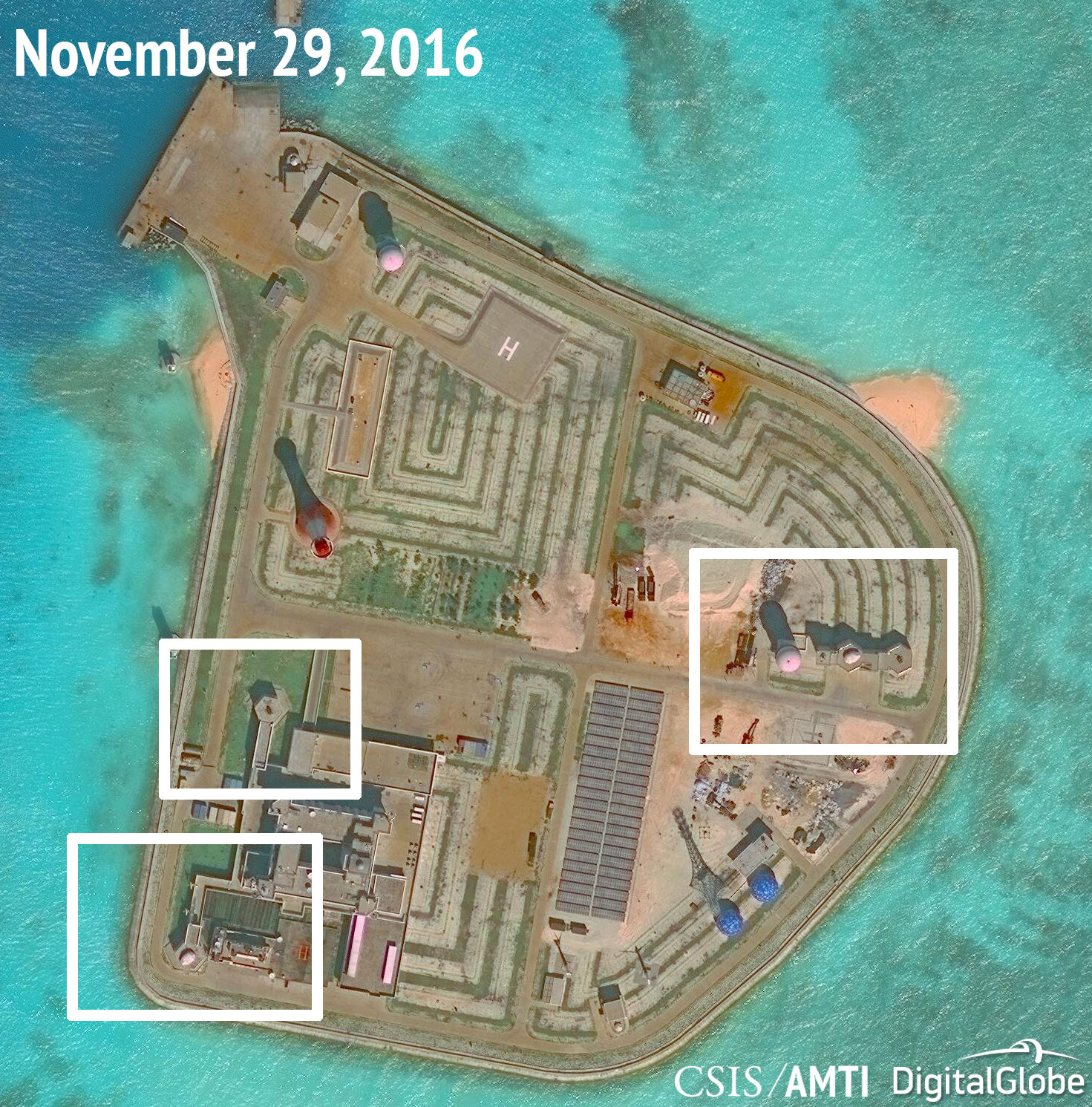China may strike back if US blocks Beijing's access to disputed South China Sea islands, experts say
International Business Times
China's foreign ministry has, however, played down the tough talks by Rex Tillerson over territorial disputes.
Fiery rhetoric from US President-elect Donald Trump or his nominees will reportedly not stop China from changing its actions in the South China Sea. It may in fact push Beijing to retaliate if Washington provokes by blocking its access to the man-made islands, experts from the communist country said on Thursday (12 January).
China's reaction came hours after Trump's secretary of state nominee, Rex Tillerson, suggested that China should be denied entry to the disputed territories saying its aggressive domination in the region could pose serious threat to the global economy.
Any attempt by the US would only prompt China to enhance its military built-up, including setting up Air Defense Identification Zone in the hotly contested waters, the experts said in response to Tillerson's proposal.
"What's been built has been built... It should be noted that rising American military pressure could be used to justify China's military deployment," Wu Xinbo, head of American Studies at Shanghai's Fudan University was quoted as saying by South China Morning Post.
Another expert, Yuan Zheng, who is a researcher at the Chinese Academy of Social Sciences' Institute of American Studies, believes that Tillerson would not have the courage to implement the idea he suggested while speaking during his confirmation hearing before the US Senate Foreign Relations Committee on Wednesday (11 January).
"I don't think the US will stop China from accessing its own islands in the South China Sea. China is not Cuba, and the South China Sea is not the Caribbean. The South China Sea is not under the US sphere of influence, it is China's territorial waters," Yuan added.
Wu is reported to have suggested that the US has few options to continue its patrolling in the disputed waterway, but that does not include any legal ground to deny access to Beijing, Yuan said.
Both the experts believe Tillerson took a hard-line stand against China to make up for his lack of diplomatic experience.
"Such tough talk can only negatively impact Sino-US relations. But he's saying what Congress loves to hear," Yuan said.
However, China's foreign ministry is reported to have played down the tough-talks by the former Exxon Mobil CEO.
China-US ties are based on "non-confrontation, non-conflict, mutual benefit and win-win cooperation," spokesman Lu Kang said at a daily briefing on Thursday (12 January).
"If you take a look at [Chinese] President Xi Jinping's call with Donald Trump after he won the election, you can see that the two countries do respect each other, and we agree with him that we should develop our relations based on mutual respect," AP cited him as saying.
Michael Swaine, an expert on China-related security topics at the Carnegie Endowment for International Peace in Washington took to Twitter to call Tillerson's testimony as "reckless/inaccurate".
"Hmm never heard of 'act of war?'" he tweeted.

No comments:
Post a Comment